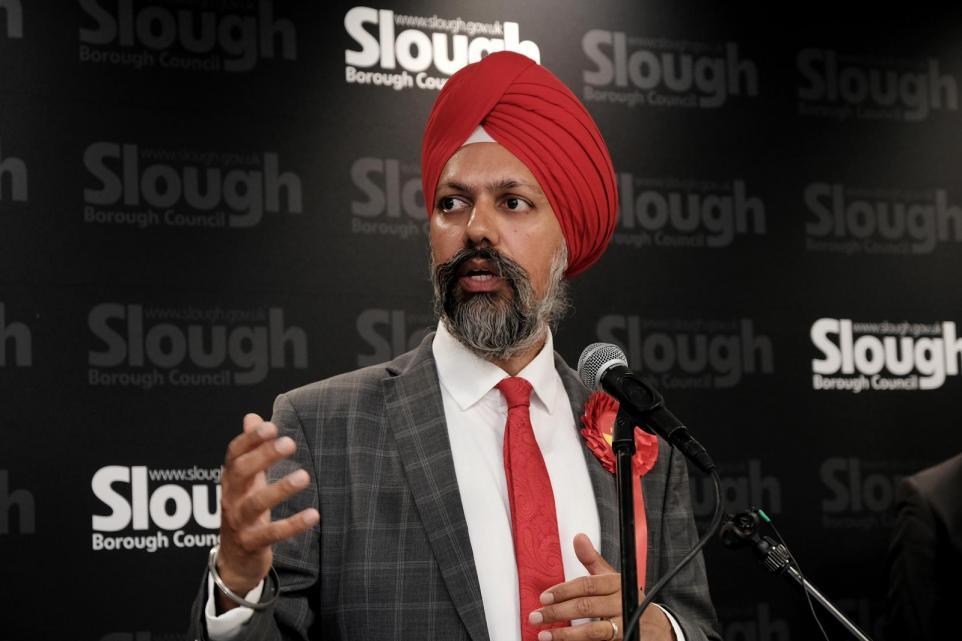From artisanal crepes to rebellious cheesecake waffles, Reading's breakfast rebels are transforming morning meals. These seven spots will revolutionize how you start your day.
Slough MP Takes Stand Against Assisted Dying Bill
In a significant development on the contentious issue of assisted dying, Tan Dhesi, the Member of Parliament for Slough, has announced his intention to vote against a bill that would legalise the practice in the United Kingdom. The MP's decision comes amidst ongoing debates surrounding end-of-life care and personal autonomy.

Concerns Over Practical Implementation
Dhesi's opposition to the bill stems from his apprehensions about its practical application. The Slough representative has expressed concerns that the proposed legislation may be "inadequate in practice," suggesting potential shortcomings in its implementation or safeguards.
This stance by a prominent MP adds another voice to the complex and emotionally charged discussion on assisted dying, highlighting the challenges lawmakers face in balancing ethical considerations with legal frameworks.
MP's Stance on Assisted Dying Bill
Tan Dhesi, the Member of Parliament for Slough, has taken a firm position against the proposed assisted dying bill in the United Kingdom. The MP's decision to vote against the legislation marks a significant moment in the ongoing debate surrounding end-of-life care and personal autonomy. Dhesi's opposition stems from his concerns about the bill's practical implementation, suggesting that the proposed measures may be "inadequate in practice."
Implications for End-of-Life Care
The Slough MP's stance highlights the complex nature of the assisted dying debate, which touches on fundamental issues of ethics, personal choice, and the role of medical professionals in end-of-life care. By voicing his concerns, Dhesi brings attention to the potential challenges and shortcomings that could arise if the bill were to become law. His position underscores the need for thorough consideration of all aspects of such legislation, including its real-world application and potential consequences.
Broader Context of the Debate
Dhesi's announcement comes amid a wider national discussion on assisted dying. The bill, if passed, would represent a significant shift in UK law regarding end-of-life choices. Proponents of assisted dying argue that it provides dignity and autonomy to terminally ill individuals, while opponents, like Dhesi, express concerns about safeguards and practical implementation. The MP's decision to vote against the bill adds another prominent voice to the opposition, potentially influencing the outcome of the parliamentary vote.
Impact on Constituents and Policy
As the representative for Slough, Dhesi's position on this issue is likely to resonate with his constituents. His concerns about the bill's adequacy in practice reflect broader worries about how such a law might be implemented and regulated. This stance may prompt further discussion and debate among Slough residents about the ethical and practical implications of legalising assisted dying. It also raises questions about how lawmakers can address the concerns of those who oppose the bill while still considering the wishes of those who support it.
Balancing Ethical Considerations and Legal Frameworks
Tan Dhesi's opposition to the assisted dying bill underscores the delicate balance lawmakers must strike between ethical considerations and legal frameworks. The Slough MP's stance highlights the need for a thorough examination of the potential consequences of such legislation. As the debate continues, policymakers will need to address concerns about practical implementation while also considering the rights of individuals seeking end-of-life choices.
Potential Impact on Healthcare System
The introduction of assisted dying legislation could have far-reaching implications for the UK's healthcare system. Medical professionals would face new ethical dilemmas and responsibilities, potentially altering the doctor-patient relationship. Dhesi's concerns about the bill's adequacy in practice may reflect broader worries about how the healthcare system would adapt to such a significant change in end-of-life care policies.
Public Opinion and Social Implications
Dhesi's position on the assisted dying bill may influence public opinion, particularly in his constituency of Slough. His stance could spark further discussions among community members about the social and moral implications of legalising assisted dying. As a result, the debate may extend beyond the halls of Parliament, encouraging a wider societal conversation about death, dignity, and personal autonomy.
Future of the Bill and Parliamentary Process
The MP's decision to vote against the bill adds another layer of complexity to its journey through Parliament. As more lawmakers declare their positions, the fate of the assisted dying legislation remains uncertain. The coming debates and votes will likely be closely watched by advocates on both sides of the issue, as well as by the general public. The outcome could set a precedent for how the UK approaches end-of-life care and personal choice in the years to come.